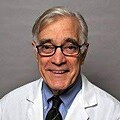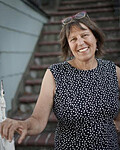Estrogenic overstimulation is carcinogenic in human breast tissue. Personal care products such as shampoo, deodorant, and fragrance often contain chemicals such as parabens and phthalates, which have estrogenic activity.
In this webinar, Dr. William Goodson described recent research to identify the effects in human tissues of reducing exposure to xenoestrogens through personal care products. Since it is not ethical to intentionally expose people to chemicals of concern, this study was designed to eliminate certain exposures in individuals who were already exposed.
This study was a community-based participatory research project, in which breast cancer survivors worked with breast cancer researchers to design and conduct research assessing the effects of reducing specific chemical exposures.
Study participants were enrolled in a program of reduced xenoestrogen use. Participants discontinued their use of personal care products containing parabens or phthalates over the course of a 28 day period. The researchers collected pre- and post-intervention fine needle aspirates of the breast from the participants. By examining gene expression in these aspirates, they found a reversal of cancer-associated phenotypes within breast cells of the participants who eliminated their use of these products. They also found a reduction of parabens and phthalate metabolites in these participants’ urine.
The study, “Reduction of daily-use parabens and phthalates reverses accumulation of cancer-associated phenotypes within disease-free breast tissue of study subjects,” helps to demonstrate that reducing exposure to hormonally active chemicals can reduce pro-carcinogenic phenotypes at the cellular level. The findings provide insight into opportunities to reduce breast cancer risk by reducing or eliminating certain chemical exposures.
Polly Marshall, JD, the Community Principal Investigator for the study, spoke about the community based participatory research process.
This webinar was moderated by Dr. Jerry Heindel of the Healthy Environment and Endocrine Disruptor Strategies (HEEDS) program of Environmental Health Sciences.
Featured Speaker
 William Goodson, MD has over 30 years of experience in the diagnosis and care of breast diseases. He is a Senior Clinical Research Scientist at the the California Pacific Medical Center Research Institute, where he is actively involved in research on how environmental chemicals affect women’s and children’s health. He is also a spokesperson for The Halifax Project, which has raised awareness of the inadequacy of testing environmental chemicals individually instead of in mixtures. In 2009, Dr. Goodson was awarded the Compassionate Caring Award from the Institute for Health and Healing in San Francisco, CA. Dr. Goodson is a member of the Society for Surgical Oncology, the American College of Surgeons, the American Society of Breast Surgeons, and the American Society for Clinical Oncology. He has been listed in the Best Doctors in America since 1991.
William Goodson, MD has over 30 years of experience in the diagnosis and care of breast diseases. He is a Senior Clinical Research Scientist at the the California Pacific Medical Center Research Institute, where he is actively involved in research on how environmental chemicals affect women’s and children’s health. He is also a spokesperson for The Halifax Project, which has raised awareness of the inadequacy of testing environmental chemicals individually instead of in mixtures. In 2009, Dr. Goodson was awarded the Compassionate Caring Award from the Institute for Health and Healing in San Francisco, CA. Dr. Goodson is a member of the Society for Surgical Oncology, the American College of Surgeons, the American Society of Breast Surgeons, and the American Society for Clinical Oncology. He has been listed in the Best Doctors in America since 1991.
 Polly Marshall, JD worked for 30 years as an attorney, specializing in affordable housing development, and also served for 35 years as a commissioner on the San Francisco Rent Control Board. Polly was diagnosed with breast cancer in 2009, and began training and working as a breast cancer prevention advocate. She founded Breast Cancer Over Time, a nonprofit created and controlled by breast cancer survivors and dedicated to supporting scientific research into breast cancer prevention. Polly leads a support group for women with breast cancer, and is the Community Principal Investigator on a research study on the impact of estrogenic chemicals found in personal care products on normal human breast cells donated by women who have never had breast cancer. She has a BA degree from UC Santa Cruz and a law degree from UC Berkeley. She is the mother of two.
Polly Marshall, JD worked for 30 years as an attorney, specializing in affordable housing development, and also served for 35 years as a commissioner on the San Francisco Rent Control Board. Polly was diagnosed with breast cancer in 2009, and began training and working as a breast cancer prevention advocate. She founded Breast Cancer Over Time, a nonprofit created and controlled by breast cancer survivors and dedicated to supporting scientific research into breast cancer prevention. Polly leads a support group for women with breast cancer, and is the Community Principal Investigator on a research study on the impact of estrogenic chemicals found in personal care products on normal human breast cells donated by women who have never had breast cancer. She has a BA degree from UC Santa Cruz and a law degree from UC Berkeley. She is the mother of two.
This webinar was hosted by the EDC Strategies Partnership, which is co-chaired by Sharyle Patton (Commonweal Biomonitoring Resource Center), Jerry Heindel and Sarah Howard (Environmental Health Sciences' Healthy Environment and Endocrine Disruptor Strategies HEEDS), Génon Jensen (Health and Environment Alliance, HEAL), and Rachel Massey (CHE, Collaborative for Health and Environment). To see a full list of past calls and webinars related to EDCs and listen to or view recordings, please visit our partnership page.
